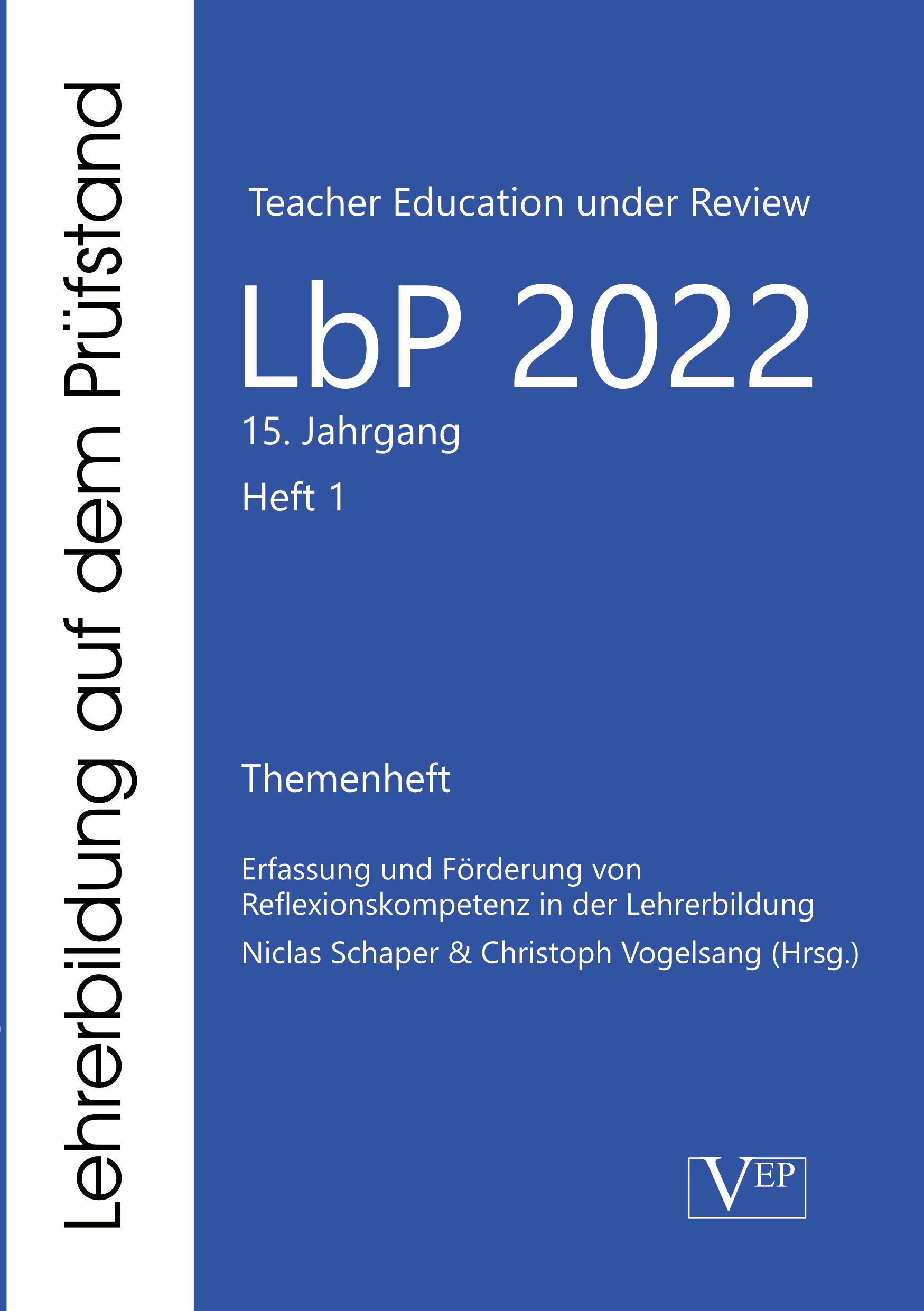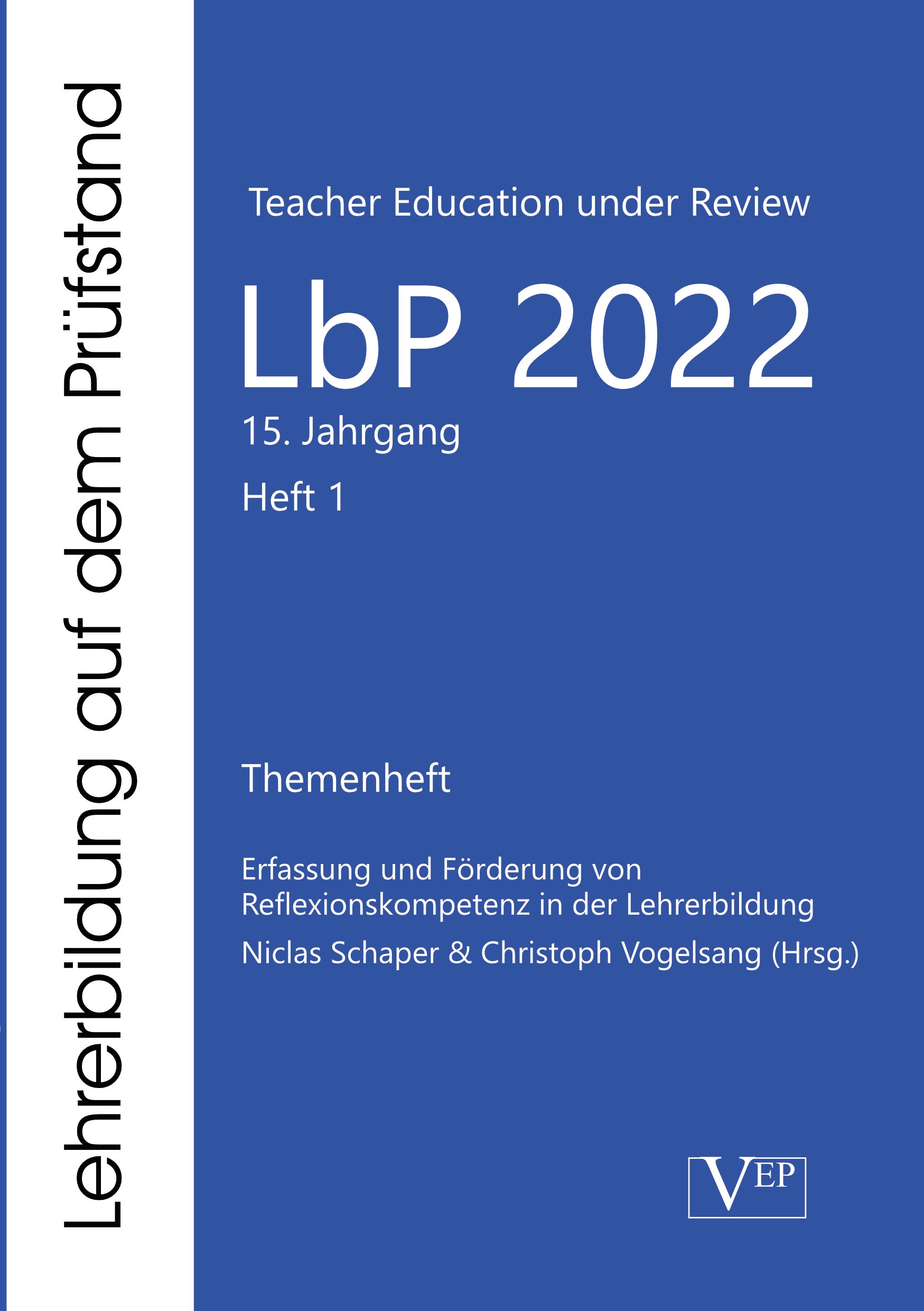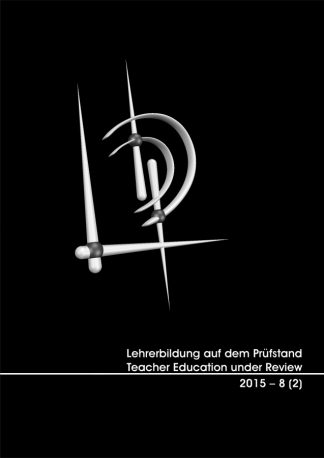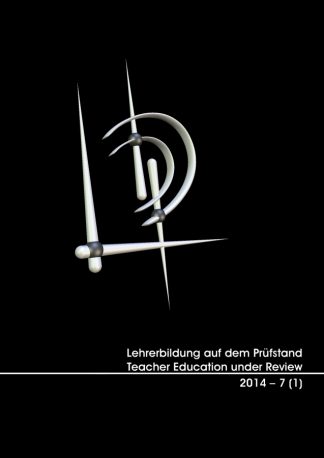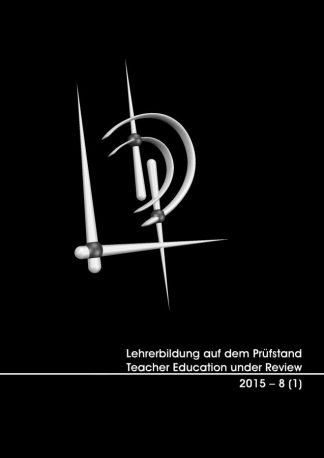Inhalt
Gemäß dem ‚Kontinuumsmodell von Reflexionskompetenz‘ bedingen die Dispositionen einer Person die Denkprozesse und die Performanz beim Reflektieren. Im vorliegenden Beitrag wird daher untersucht, ob sich diese theoretisch begründete Modellierung von Reflexionsfähigkeiten auch im subjektiven Reflexionsverständnis von Studierenden abbildet, um ein einheitliches Kommunizieren über Reflexion zu ermöglichen. Darüber hinaus wird der Frage nachgegangen, inwieweit das Reflexionsverständnis und weitere reflexionsbezogene Dispositionen mit der Reflexionsperformanz der Studierenden zusammenhängen. Die Ergebnisse zeigen, dass die Studierendenaussagen zum Verständnis von Reflexion den situationsspezifischen Fähigkeiten aus dem Kontinuumsmodell zugeordnet werden können und somit in Ansätzen eine Passung zum theoretischen Modell besteht. Ein zentraler Unterschied zeigt sich jedoch bei dem Aspekt Theorie-Praxis-Relationierung, der nur von einzelnen Studierenden angeführt wird. Es zeigen sich darüber hinaus einzelne, geringe Zusammenhänge zwischen den Dispositionen und der Reflexionsperformanz. Im Beitrag werden die Bedeutung reflexionsbezogener Dispositionen sowie Implikationen für weitere Reflexionsforschung und -praxis diskutiert.
Schlagwörter: Lehramtsausbildung – Reflexionskompetenz – Reflexionsverständnis – Professionalisierung
According to a continuum model of reflective competence, a person’s dispositions determine the thought processes and performance in reflection. Therefore, this article examines whether this theoretical modelling of reflective skills is also reflected in students‘ subjective understanding of reflection in order to enable a consistent communication about reflection. Furthermore, the question is explored to what extent the understanding of reflection and other reflection-related dispositions are related to the students‘ reflection performance. The results show that the students‘ statements on their understanding of reflection can be assigned to the situation-specific abilities from the continuum model. Thus, there is a basic fit with the theoretical model. However, a central difference emerges in the aspect of theory-practice relation, which is only mentioned by individual students. Furthermore, low correlations between the dispositions and the reflective performance can be noticed. The article discusses the significance of reflection-related dispositions and implications for further reflection research and practice.
Keywords: teacher education – reflection competence – understanding of reflection – professionalization
